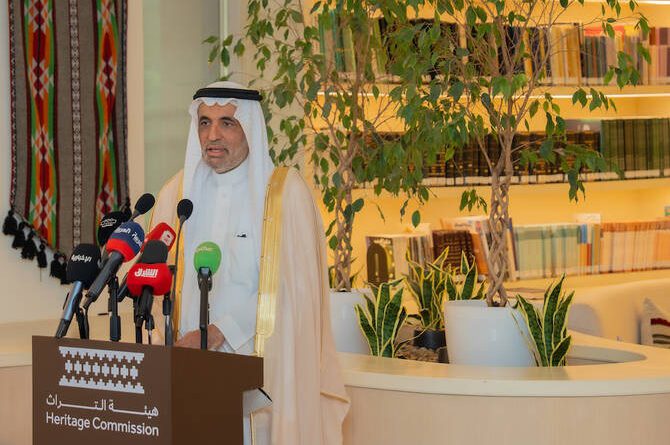Saudi Arabia Unveils Oldest Evidence of Human Life in Arabian Peninsula
Riyadh — Saudi Arabia’s Ministry of Culture announced the discovery of the Arabian Peninsula’s oldest known architectural settlement, dating back between 10,300 and 11,000 years, near Tabuk. Experts say the find is “among the oldest settlements in the world,” shedding light on the region’s deep-rooted role in early human civilization.
The excavation, carried out by the Kingdom’s Heritage Commission in partnership with Japan’s Kanazawa University and in collaboration with NEOM, revealed semi-circular granite structures, residential units, passageways, hearths, and storage areas, suggesting an organized early community.
Archaeologists also uncovered stone tools, grinding stones, knives, arrowheads, decorative items, ceramics, agricultural tools, beehives, and both human and animal skeletons. Stones engraved with geometric patterns further underscored the settlement’s cultural significance.
Dr. Ajab Al-Otaibi, director general of the Heritage Commission’s antiquities sector, said the discovery highlights “the pivotal role of the Arabian Peninsula in the emergence of human civilization.”
The Masiyon site has been on the National Antiquities Register since 1978, but advanced studies and excavations carried out between 2022 and 2024 have now confirmed its historic depth, placing it within the earliest known settlements worldwide.
Researchers say the findings reinforce theories that northwest Arabia was a natural extension of Mesopotamia, the Levant, and Southern Anatolia — the Fertile Crescent — and was home to one of humanity’s earliest transitions from nomadic life to permanent settlement.
The discovery is being hailed as a landmark in understanding not only Saudi Arabia’s ancient history, but also humanity’s shared origins.



